-
 +25 +4
+25 +4Are GMOs Good or Bad? Genetic Engineering & Our Food
Published on Mar 30, 2017 Are GMOs bad for your health? Or is this fear unfounded?
-
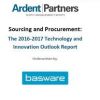 -1 +1
-1 +1Sourcing and Procurement: The 2016-2017 Technology and Innovation Outlook Report
the impact of today’s progressive solutions as well as those that are emerging across all relevant sourcing and procurement processes.
-
 +15 +3
+15 +3Light Is Waves: Crash Course Physics #39
Published on Jan 26, 2017 · 1 hour ago The way light behaves can seem very counter intuitive, and many physicists would agree with that, but once you figure out light waves it all starts to make more sense! In this episode of Crash Course Physics, Shini shows us how we know that light exists as a wave and why that's really cool!
-
 +7 +1
+7 +1History of angioplasty timeline
Did you know the history of angioplasty and interventional cardiology dates back to 3000 B.C.?
-
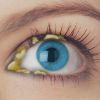 +13 +4
+13 +4Why Do We Get Eye Boogers?
Do eye boogers play a crucial role in maintaining the overall health of our eyes, or are they just a gross inconvenience?
-
 +23 +5
+23 +5How streets, roads, and avenues are different
Published on Nov 14, 2016 There's a method to the madness of classifying roads. Take a ride with Phil Edwards, as he explains the naming conventions behind roads. A street is a road but a road isn't always a street. A road can also be an avenue or a boulevard—it's the general term for anything that connects two points. From there, the names of roads can be shaped by their environment and/or the form of the road. A drive is a long winding road that can be shaped by mountains or a lake. Place is a narrow road with no throughway. And just as there is no rule book to building a city, these roads and other don't always correspond with thei
-
 +6 +1
+6 +1What you need to know about CRISPR | Ellen Jorgensen
Should we bring back the wooly mammoth? Or edit a human embryo? Or wipe out an entire species that we consider harmful? The genome-editing technology CRISPR has made extraordinary questions like these legitimate — but how does it work? Scientist and community lab advocate Ellen Jorgensen is on a mission to explain the myths and realities of CRISPR, hype-free, to the non-scientists among us.
-
 +4 +1
+4 +1The 71 Most AMAZING Innovations of All Time
This episode is sponsored by The Gates Foundation
-
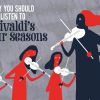 +3 +1
+3 +1Why should you listen to Vivaldi's "Four Seasons"? - Betsy Schwarm
Light, bright, and cheerful, "The Four Seasons" by Antonio Vivaldi is some of the most familiar of all early 18th century music, featured in numerous films and television commercials. But what is its significance, and why does it sound that way? Betsy Schwarm uncovers the underlying narrative of this musical masterpiece.
-
 +23 +4
+23 +4How Baby Turtles Find Their Way Home
-
 +29 +6
+29 +6In one German town, 1,000 people killed themselves in 72 hours
Rather than surrender to the Red Army, citizens of Demmin committed ‘selbstmord’
-
 +20 +6
+20 +6For These Tiny Spiders, It's Sing or Get Served | Deep Look
Published on Oct 4, 2016 Male jumping spiders perform courtship dances that would make Bob Fosse proud. But if they bomb, they can wind up somebody's dinner instead of their mate.
-
 +22 +5
+22 +5The Donald Trump Caterpillar and Nature's Masters of Disguise
They have some of the best caterpillars in Peru.
-
 +10 +3
+10 +3Which Countries Stayed Neutral During The Cold War?
Despite the end of the Cold War, many countries still gather together in the Non-Aligned Movement. So what is this coalition of neutrality?
-
 +22 +1
+22 +13 Senses You Didn’t Know You Had
At some point, you’ve probably learned about the five senses: sight, sound, smell, taste, and touch. However, the classic list doesn't account for all the sensations we experience and use to navigate the world around us!
-
 +22 +3
+22 +3Where Is It Illegal To Insult Religion?
In Egypt, a woman was sentenced to jail for making an anti-religious comment on Facebook. So where else can you be punished for blasphemy?
-
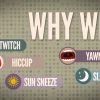 +26 +7
+26 +75 Weird Involuntary Behaviors Explained!
Our bodies do a lot of weird things, and many of them are completely involuntary. Why do we often jerk our bodies awake right before falling asleep? Why do we yawn? Why do we hiccup? Why do some people sneeze when they look at the sun? And why does your eye twitch? This week we'll look at the science behind these crazy involuntary behaviors!
-
 +18 +3
+18 +35 times Crayola retired its crayons.
Some names were deemed no longer suitable. The Civil Rights movement had a direct impact on Crayola’s core stable of shades. In 1962, Crayola voluntarily changed “Flesh” to “Peach” in an attempt to preempt any potential legal issues—and to encourage coloring enthusiasts the world over to diversify their stick figures.
-
 +6 +3
+6 +3Heart rate vs pulse.
When a heart beats, blood is pushed through the body, causing a change in blood pressure and a pulse in main arteries. In healthy individuals, this means the heart rate is often synchronized with the pulse. However, heart rate and pulse rate are technically different because a heart rate measures the rate of contractions (heart beats) of the heart, whereas a pulse rate measures the rate of palpable blood pressure increases throughout the body.
-
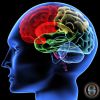 +10 +3
+10 +3The Mandela Effect.
The Mandela Effect is a term for where a group of people all mis-remember the same detail, event or physicality.
Submit a link
Start a discussion




















